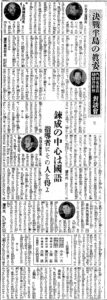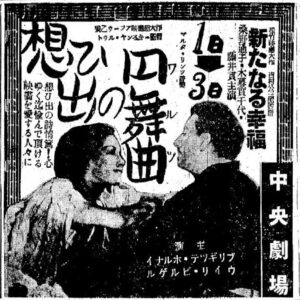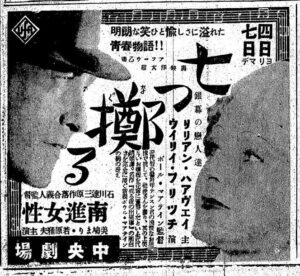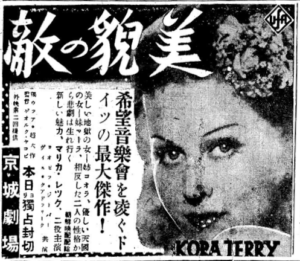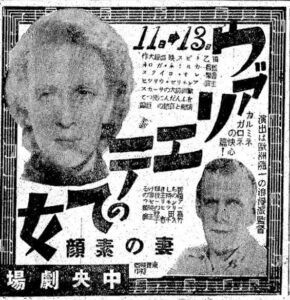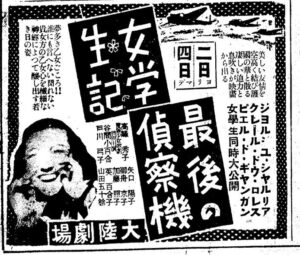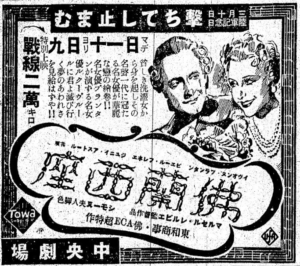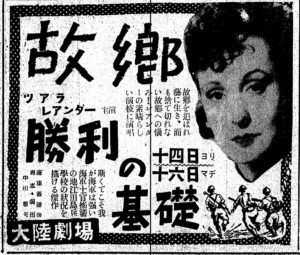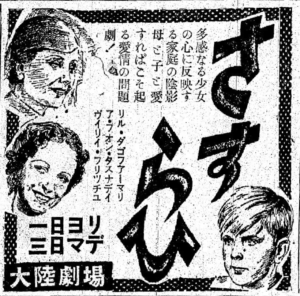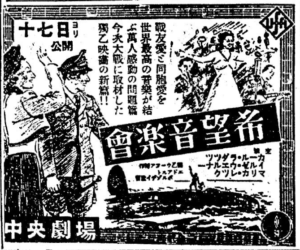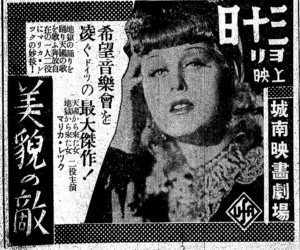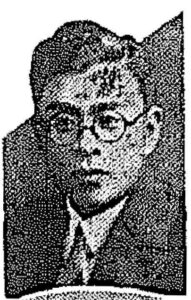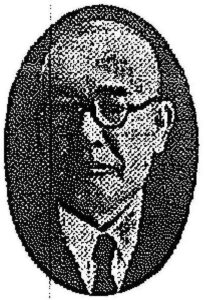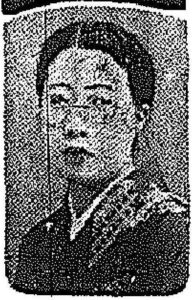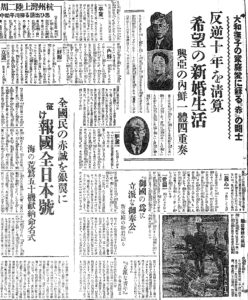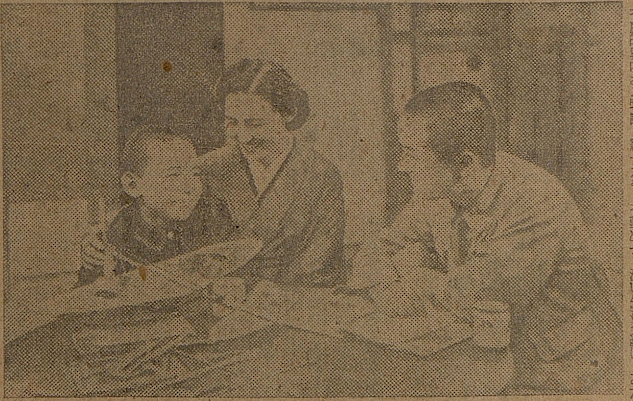In June 1943, Keijo Nippo ran a long series of roundtable discussion articles, where colonial interior ministry officials gathered to have frank discussions about their dealings with Korean people. Here, I've translated parts 3 and 4, where the officials discuss their strategy for increasing the use of Japanese and decreasing the use of Korean. They stress the importance of training and recruiting ethnic Koreans, including women, to become Japanese language teachers in rural communities. They envy the success of Western missionaries in winning the hearts and minds of the Korean people. North Hamgyong Province is praised as the Korean province with the highest rate of adoption of the Japanese language.
There is some acknowledgment of the extreme complexity of the Japanese written language and the need to simplify it, especially when even many native Japanese speakers have trouble understanding obscure terminology and difficult Chinese characters. They make insinuations that most Koreans have 'low moral standards as human beings', and jokingly compare them to 'bad product samples' that are distributed by stores. They also seem to suggest that the Korean language is inadequate in expressing the 'deep spiritual content' of the 'essence of Japanese culture'.
One colonial official floats the idea of actively exterminating the Korean language, but that idea is shot down by his colleague who said that would backfire. They express their hope that Korean will naturally fade away into becoming just a local dialect like the Tohoku or Kyushu Japanese dialects as people become stigmatized for speaking only Korean, Japanese becomes spoken as a lingua franca between speakers of mutually unintelligible Korean dialects, and Japanese eventually becomes the dominant language of Korea.
The biographic information for individual colonial officials was readily available online, so I added links to their names and noted their birth years and death years in the translation.
(Translation)
Gyeongseong Ilbo (Keijo Nippo) June 17, 1943
A real look into the Korean Peninsula at war
Roundtable discussion with executives at the Interior Ministry of the Governor-General's Office (Part 3)
The focus of training should be the Japanese language
Find the right teachers for Japanese instruction
Mr. Yamana Mikio (1905-1982), Chief of the Documentation Division: Regarding Japanese language education, if housewives and mothers at home do not understand the Japanese language, things will not go so well, so there are places that are conducting the "One Word a Day Campaign" in which mothers are taught the Japanese language by elementary school students, and it seems to be quite effective. I have high hopes that the time will come when people who cannot speak Japanese will be looked down upon as country bumpkins.
Mr. Kōtaki Motoi (1894-?), Director of the Production Bureau: This kind of sentiment is becoming stronger in the rural areas. The government is planning and promoting Japanese language courses, but even in their absence, there is still a sincere desire to learn the Japanese language in the countryside.
◇...◇
In general, women's education is lagging behind very much in Korea. I don't know how it is now, but in the past, it was not possible to send women to elementary schools unless their family was above a certain stature. It is a great pity that such women do not know the Japanese language when they raise their children, so some of them voluntarily come to school to earnestly learn Japanese. That's why even people in the rural villages can generally understand everyday conversations in Japanese.
Mr. Shiota Seikō (1899-?), Director of Department of Rural Villages: In the end, I believe that the first and foremost issue is to obtain teachers for women's Japanese language education. Once you have such teachers, then you will be able to thoroughly implement the programs. The Governor-General was impressed when he went to see them, and I was also very impressed when I went to see them for myself.
◇...◇
There were two middle-class women, about 20 years old, who were at a farm in Hwanghae Province. Their training performance was very similar to the men at the training institutes, so to pursue further training, they left Hwanghae Province and went to Tokyo to go on a holy pilgrimage, and then they went to Kinkei Academy to undergo further training with male trainees. Since they were 19 and 20 years old, respectively, they were vehemently refused admission at first, since the academy did not want the two young women to be the only women in the otherwise all-male group. But the women insisted, saying "There is no law that says that we should be deprived of the opportunity to complete our training, when we have completed the requisite training and acquired the necessary qualifications. Isn't it the men who seduce the women? There is no law that says the men who seduce the women can go to mainland Japan to pursue further training, while the women who were seduced by the men cannot go to mainland Japan to pursue further training" (laughter).
◇...◇
Now, both of the women are working as teachers for the women in their settlement. When we go visit their settlement, the housewives greet us with smiles wherever we go. They greet us with, "Irasshaimase! (Welcome!)" in Japanese. That made us assume that they understood Japanese, so we went into their kitchen and asked them what they had for lunch that day. However, they could not answer. Another housewife rides her bicycle 2 to 3 miles to attend her training in the evenings. When you have such people as teachers, you know that things are thoroughly getting better.
Mr. Hyōdō Masaru (1897-1946), Director of Planning: I recently went around the countryside to observe how the special training programs were progressing. It has been only around 40 days since the special training started and conducted every two to three days, not everyday. Already, young boys who had never attended school could competently answer questions like, "Do you have a father?" and "How many siblings do you have?" At this rate, if they spend 600 hours a year in the program, they should be able to achieve a considerable amount of success. The Japanese language is now rapidly penetrating Korea through these special training programs for young people, and there will be 110,000 more people who can understand Japanese over the course of this one year.
Mr. Shiota Seikō (1899-?): When you go to the countryside and use a Korean interpreter to ask someone a question, assuming that they wouldn't understand Japanese, they may actually reply competently in Japanese. Even if they learn something at school, they may forget it when they return home, and that ultimately depends on their environment. Therefore, the government officials who are their leaders must try to convert their surroundings into a Japanese language environment as much as possible. If they are forced to use the Japanese language, they will start to remember what they learned. If we don't do this even in our agricultural teaching programs, I don't think it will be thorough enough.
Mr. Morita Masayoshi (1908-2004), member of the Interior Ministry: In the end, the core of the training programs in Korea boils down to Japanese language education, doesn't it? I think we can conclude that Japanese-Korean unification should also be based on Japanese language education. In order to truly realize Imperialization, they must thoroughly use the Japanese language regularly. If we don't go that far, I don't think we will be able to improve our achievements. In this respect, I have heard that British and American missionaries first learned the Korean language when they arrived in Korea, and then they lived among the Korean people to win their hearts, but I believe that we should take a completely opposite approach moving forward.
Mr. Shiota Seikō (1899-?): In order to improve our agricultural activities, we have to understand the feelings of the people we are dealing with. If we only know Japanese and they only know Korean, as has been the case up to now, there will be a wall separating the two sides and we will not be able to improve our performance. Only when our feelings freely flow to the other side can we truly share our hearts with the other side. That is why it is absolutely necessary to convert their surroundings into a Japanese language environment.
◇...◇
To help along with this process, the fact that we know the Korean language is the best thing. Although we have been too negligent to realize this, I believe that understanding the feelings of others is the key to thorough instruction in everything. I think that is how U.S. missionaries built churches that are so magnificent, people are amazed that they managed to build such magnificent churches in such remote places in the countryside. No wonder then that they conveyed their feelings and won the hearts of the people by first learning Korean and then living among the people in the countryside.
Mr. Morita Masayoshi (1908-2004): So that's how they did it? Since our goal is to thoroughly educate the people in the Japanese language, I don't see how we can't be thorough unless we adopt a method of exterminating the Korean language….
Mr. Kōtaki Motoi (1894-?): That would have the opposite effect. I think we have to go about it in a way so as to 'let the water soak in', so to speak. We should not exterminate one language in order to promote the Japanese language. The Korean language must naturally stop being spoken as a result of the spread of the Japanese language. (to be continued)
Source: https://www.archive.org/details/kjnp-1943-06-17
Gyeongseong Ilbo (Keijo Nippo) June 18, 1943
A real look into the Korean Peninsula at war
Roundtable discussion with executives at the Interior Ministry of the Governor-General's Office (Part 4)
Show us the Righteous Koreans! Their leaders must come to their senses
Mr. Yamana Mikio (1905-1982): I had an interesting conversation the other day about a Korean laborer who went to the South Pacific for military-related work. The natives thought that a Japanese man had arrived, so they spoke to him in Japanese, but the Korean laborer could not understand them, so the natives refused to take him seriously, saying, "You are not Japanese, so you are no good". So, the Korean laborer wrote a letter to his compatriots admonishing them that, if they go to the South Pacific as laborers, they should definitely learn the Japanese language. Otherwise, they would lose face because they wouldn't be seen as Japanese. In this way, the time has now arrived when it is necessary to learn and adopt the Japanese language. I believe that the time will soon come when the Korean language will be regarded as just another local dialect within the co-prosperity zone, like the Japanese dialects of Kyūshū and Tōhoku.
Mr. Kōtaki Motoi (1894-?): Even now, the language used in the North Hamgyong Province of Northern Korea is different from that of Southern Korea. It is said that it is difficult for Northern and Southern Koreans to express one's true feelings and communicate with each other speaking their respective Korean dialects. I heard from a Korean official who is now in North Hamgyong Province that, when people from Northern and Southern Korea come to Seoul and have a complicated conversation, they speak in the Japanese language.
Mr. Nakai Kazuo (1889-1991), a member of the Parliament and a member of the Interior Ministry: Even in mainland Japan, if you go to Kagoshima or places in the North and hear the local dialects, we would not be able to understand them.
Mr. Kōtaki Motoi (1894-?): This is the reason why the rate of Japanese language adoption is better in North Hamgyong Province than in any other province.
Mr. Shiota Seikō (1899-?): Statistics show that North Hamgyong Province is number one in terms of Japanese language adoption.
Mr. Yamana Mikio (1905-1982): Compared to other languages, the Korean language has only the bones of a language. There is no blood or flesh attached to the Korean language. Therefore, when Koreans talk in their language about the essence of Japanese culture, which has a deep spiritual content, they have to say things in a roundabout way to make their meaning understood. Korean people who have spiritually opened their eyes find it necessary to vigorously use the Japanese language. Life is connected to language, and where life is poor, language is also poor. Therefore, there are no words in the Korean language that can express the essence of the Japanese spirit in a straightforward way.
Mr. Nakai Kazuo (1889-1991): In this respect, there is still a problem in the teaching of the Japanese language, in that much reflection and effort are required on the part of the instructors. The Japanese language we use is not so difficult, but it becomes very difficult when we write it down. The foundation of our language is Chinese characters, but the way we use them is too difficult. First of all, laws and ordinances are difficult to understand. Then, military terminology is also extremely difficult. Furthermore, the terminology used in newspapers is extremely difficult. Keijo Nippo is the most influential Japanese-language newspaper in Korea, but how many people in Korea can read all the words written in Keijo Nippo? In this sense, even in mainland Japan, the attitude of the leadership toward the use of the Japanese language comes from a very elevated position. It is necessary to lower the level of the Japanese language to such an extent that those who have graduated from elementary school can generally understand it.
Therefore, it is necessary to pay special attention to restricting the use of Chinese characters, especially when considering that the power of our country is expanding widely and we have to stand and embrace the billions of people of East Asia. Nevertheless, I think it is extremely inappropriate to teach the Japanese language to our Korean compatriots and tell them to learn it quickly, but at the same time use difficult Japanese words that even most ordinary people in mainland Japan do not understand. We hope that Japanese language education for our Korean compatriots will become thorough as soon as possible, and at the same time, we hope that we will not use particularly difficult Japanese words with them.
Mr. Kōtaki Motoi (1894-?): We are keenly aware of this every day. This is true whether you listen to broadcasts, read newspapers, or read documents issued by government offices. For example, a document is sent to the provincial governor from the Governor-General's Office. That document is gradually sent down from the provincial office to the county (gun) office, and from the county office to the township (myeon) office, largely unchanged with only the date and the name of the addressee altered as the document is passed down. Therefore, there are times when the people at the township office cannot understand the document at all. I think it is necessary to change such things as gently as possible.
Mr. Nakai Kazuo (1889-1991): Earlier, the Director of the Production Bureau said that the people in mainland Japan do not know enough about the Korean peninsula and that they do not have enough understanding of the Korean people, and I agree with him. However, I would like to make a complaint to the Korean people at this time. No one likes people who have low moral standards as human beings. The most important thing is to be able to frankly admit that such people would be ostracized by anyone. Even among the mainland Japanese, good people are respected and bad people are ostracized. Even among our Korean compatriots, if you are a respectable person, you will always be respected by the mainland Japanese people.
In Kobe, I have walked around apologizing and making excuses for our Korean compatriots, but there are often times when there is no excuse, no matter how patronizing it may seem. I am told that there are 1.5 million Korean compatriots who have come to mainland Japan, but most of them are not very well educated. I have always regretted that this has led to misunderstandings among the people of mainland Japan. To use an analogy, it is standard business practice in Japan to show off good product samples, but the Korean peninsula keeps showing off bad product samples to mainland Japan (laughter).
In order for mainland Japanese people to make the Koreans bear the fruits of Japanese-Korean unification, it is necessary for the Korean people themselves to bear these fruits by becoming Imperial subjects and Righteous Koreans. That is the fastest way to achieve Japanese-Korean unification. We respect from the bottom of our hearts the fact that Governor-General Koiso emphasized the establishment of a Righteous Korea. Especially after the Greater East Asia War began, I believe that one of the most important ways to establish a Righteous Korea and to realize the Imperialization of the Korean people is to lead the Korean people so that they have a strong sense of responsibility and awareness that they, along with the people of mainland Japan, are the older brothers and leaders of the Manchurians, the Chinese, and people in the South Pacific region. What are the guidelines of the Governor-General's Office in this regard?
Mr. Kōtaki Motoi (1894-?): You are absolutely right. The Governor-General is also in agreement. Therefore, we are educating young people to be disciplined through school education and special training for young men, which came out with the introduction of the conscription system. Even in the Meiji era, there was not much moral education. However, the Imperial Army and Navy were educating their young men to that extent. (to be continued)
Source: https://www.archive.org/details/kjnp-1943-06-18
(Transcription)
京城日報 1943年6月17日
決戦半島の真姿
内務省委員総督府幹部対談会(3)
錬成の中心は国語
指導者にその人を得よ
山名酒喜男、文書課長:それから国語教育に就いては、家庭の主婦、母親が国語が解らなければうまく行かないというので、国民学校の生徒を通してお母さんに教えて行く『一日一語運動』ということをやっている所もあり、相当効果を上げているようである。やがて国語の話せない者は田舎者だといってさげすまれる時代が来ると期待しておるような次第である。
上瀧基、殖産局長:そういった心持が農村でも強くなって、国語の講習などは役所が計画し進めるということでなしに、地方に国語を覚えたいという切なる希望が出ているわけです。
◇...◇
朝鮮は大体女の教育が非常に遅れている。今はどうなっているか知らないが、以前は婦女子を国民学校に入れるというのは相当程度以上の家庭でなければしなかった。だから大部分の農村婦人というものは全然無教育であって、そういう婦人が相当の年配になって子供を育てる場合に国語を知らないということは、まことに残念だというので、自ら講習会に来て熱心に覚えているという者もある。それで日常の要件は農村でも大体解るようになっている。
塩田正洪、農村局長:結局問題は、私は婦人の国語教育でも指導者を得るということが第一で、指導者その人を得れば徹底して行くと思う。総督も見に行って感心され、私も見に行って非常に感心した例がある。
◇...◇
黄海道にある農場ですが、そこに中堅人物として二十歳位の婦人が居る。非常に男勝りで錬成を受けて、その錬成の仕上げをするというので、黄海道を出発して聖地参拝して東京に行き、それから金鶏学院に行って男と一緒に錬成を受けて来た。十九と二十の女ですから、こういう男ばかりの中に僅か二人の若い女が加わっては困るということで、しきりに拒否したが、それを遮二無二『私共を錬成をし、有資格者にして置きながらその仕上げをするというのに除かれるという法はない』という強腰で、一体女を誘惑するのは男じゃないか。誘惑する方の男が内地に行って、誘惑される方の女が内地にいけないという法はない(笑声)というわけだ。
◇...◇
今、二人とも部落で婦人指導をしているが、その部落に私共が行ってみると、どこに行っても主婦達がにこにこして迎える。そうして『いらっしゃいませ』という。これは国語が解るのだなと思って炊事場に行って、『今日の昼飯は何を食ったか』と尋ねても、それは答えられない。もう一人の方は一夜錬成をやって二里三里ある道を自転車で通って来る。こういう人を得ると、徹底的によくなって来る。
兵頭儁、企画室長:この間地方を廻って特別錬成の状態を視て来たが、まだ始めてから僅か四十日前後、而も毎日ではなく、な二日置き、三日置きにやっているのであるが、全然学校に行ったことのない青年が『お父さんはあるか』『兄弟は何人か』などと質問すると立派に答える。この分なら一年間六百時間やれば相当のものになるのではないか。今朝鮮としては青年特別錬成を通じて急速に国語が侵透しつつあり、この一年間に十一万人の国語理解者が新たに出来るわけである。
塩田:田舎に行って、相手は国語は解るまいと思って、一つこういうことを朝鮮語で訊いてみてくれないかといって通訳させると、立派に国語で答えることがある。折角学校で覚えても家庭に帰ると忘れて了うということは結局環境である。だから指導者たる役人が環境をなるべく国語化するように心掛けなければいけない。強いて国語でやって行けば覚えて行く。私共の農業指導でもそうしないと徹底しないだろうと思う。
森田正義、内務省委員:結局朝鮮の錬成の中心は国語教育ということになるわけですな。私は内鮮一体ということも結局国語教育が根本だという結論になると思うが、本当に皇民化を実現するためには徹底的国語常用にある。そこまで行かなければ実績は上がらないのではないかと思う。それに関連して英米人の宣教師のやり方は、先ず来たら朝鮮語を覚えて半島人の中に入って民心を掴んで行くという行き方をとって来たということを聞いたのであるが、我々の今後のやり方はそれと逆に行かなければならんのではないかと思う。
塩田:私共の農事の改善にしても相手の情を掴まなければ駄目だ。今までのようにこっちは国語だけ、相手は朝鮮語だけしか知らないというような壁一重距てているようなことでは成績は上がらないと思う。こっちの心を本当に向うに反映させるためには、やはりこっちの感情が向うに流れてこそ初めて出来る。だからどうしても基調は国語化することにある。
◇...◇
其の過程に於いて我々が朝鮮語を知っているということは一番いいことで、怠慢で我々は知らないが、相手の情を掴むということが総て何の指導にも徹底するのではないかと思う。だからアメリカあたりの宣教師が、よくもこんな所にまでこんな立派な教会を建てたものだと驚かれる程立派なのを田舎になど建てているが、ああいう田舎に住み込んで先ず朝鮮語を勉強する、そうして此方の情が移るようにして人心を掴んだものだろうと思う。
森田氏:そのやり方がですな。目標が国語教育を徹底さすということなんだから朝鮮語を抹殺して行くというような方法でやらなければ徹底しないのじゃないかと思うが...
上瀧氏:それは寧ろ逆効果を来すことになる。水の浸み込むように行かなければならんと思う。国語の普及を図るために一方を絶滅してかかるということはいけない。国語が普及して朝鮮語が自然に使われなくなるということになるのでなければならんと。(つづく)
京城日報 1943年6月18日
決戦半島の真姿
内務省委員総督府幹部対談会(4)
見せよ"道義半島人"、緊要、指導者たるの自覚
山名課長:この前面白い話があった。南方に軍関係の仕事に出て行った朝鮮人の労務者の話ですが、原住民が日本人が来たというので国語で話しかけたところ通じないものだから、『お前達は日本人じゃないから駄目だ』といって相手にしなかった(笑声)。だからこれから南方に行く労務者は絶対的に国語を習ってくれ。それでなければ日本人の対面が保てないということを向うに行ってる労務者から手紙でいって来たということである。そういう風に今日では既に国語に習熟し国語を身につけなければならん時になって来たわけで、間もなく朝鮮語は九州とか東北の訛りのように共栄圏内の一地方の方言と見られる時代が来ると思う。
上瀧局長:今でも北鮮の咸北あたりと南鮮とは言葉が違う。真情を吐露して意思の疎通を図ることが困難だそうだ。だから北鮮の人と南鮮の人が京城あたりに来て、こみ入った話をするような場合には国語で話をするということを、これは役人をしていた朝鮮の人で今咸鏡北道にいる人から聞いた。
中井一夫・内務省委員・衆議院議員:内地でも鹿児島とか北に行って地方の訛りで話をされたら我我には解らない。
上瀧局長:そういうことから咸北の国語普及率は他の道より良い。
塩田局長:統計を見ると一番である。
山名課長:朝鮮語は他の言葉に較べて言葉の骨だけしかない。言葉に血とか肉がついていない。したがって精神的に深い内容を持った日本文化の真髄を語るというような時に廻りくどく言わなければ意味の通じないところがある。精神的に眼の開いた人は勢い国語を使わざるを得なくなる。生活は言葉と結び付いたもので、生活の貧弱な所は言葉も貧弱で、したがって日本精神の真髄、精髄というような日本的性格を端的に現わす言葉が朝鮮語にはない。
中井氏:その点、国語を教育する上に指導者側に於いて大いに反省し努力しなければならぬ問題が残っておるんじゃないか。我々の使っている国語はそう難しいものだとは思わぬが、これを文章に書く時には非常に難しいものになる。我々の国語の骨を成すものはやっぱり漢字であるが、その漢字の遣い方が余りに難し過ぎる。第一、法令が先ず難しい。それから軍隊用語が極めて難しい。更に新聞用語が非常に難しい。京城日報は朝鮮に於ける最も有力な国語新聞であるが、京城日報に書かれておる言葉を内地人自ら完全に読めるという人が何人居るか。その意味に於いて大体内地に於いても指導者側の国語使用の態度は非常に高い所にある。これはどうしても引き下げて国民学校を卒業した者なら大体に於いて解るという程度にまでする必要がある。
したがって漢字制限の如きものも我が国の力が広く伸びて東亜十億の民衆を抱きかかえて立たなければならぬという時に、この点は特に注意する必要がある。それにも拘わらず、半島同胞に国語を教え、早く国語を覚えよと言いながら自ら使う言葉が一般の内地人でも解らぬような難しい言葉であることは極めて宜しくないと思う。半島同胞に対する国語教育の一日も速やかに徹底せんことを希望すると同時に、特に難しい言葉は使わないことを希望する。
上瀧局長:私共も日々そういうことを痛感している。放送を聞いても、新聞を読んでも、又役所から出す文書などにしてもその通り、例えば知事あたりに本府から書面を出す。それが道から郡、郡から面というようにだんだん下に行くわけであるが、出た通りの文章をただ日付を変えるとか宛名を書き直すだけでその儘で出す。だから面事務所あたりでは全然解っていないことがある。そういうことはなるべくやさしく改めるということが必要だと思う。
中井氏:さき程殖産局長から内地の人々が半島のことを充分知っていない、半島人に対する理解が足らないというお話があったが、私も同感である。ただそれに対してこの際半島同胞に苦言を呈したいことがある。というのは、人間として道義が低ければ誰だってそれを好く者はない。誰だって排斥するのは已む得ないことだということを率直に認められることが一番必要なことと考える。我々内地人同志でも、いい人間は尊敬され悪い人間は排斥される。半島同胞でも立派な人であれば必ず内地人にも尊敬される。
私は神戸に居て半島同胞のためにいろいろ謝りに歩いたり弁解に歩いたりするが、時には如何にひいき目に見ても弁解の仕様がないようなことがよくある。内地に来ている半島同胞は百五十万と言っておりますが、余り教養のない人が大部分である。それが内地人をして誤解を生ぜしめる結果になっておるのであって、私は常に残念に思っているわけである。見本というものはよい物を出すのが日本の普通の商売のやり方なのであるが、半島から内地に出す見本は常に悪いものをだしておる(笑声)。
内地人をして内鮮一体の実を上げさせるためには、半島人自らが所謂皇国臣民として、道義半島人としての実を上げることが内鮮一体の早道である。小磯総督が道義朝鮮の確立ということを強調されておることは私共衷心より敬重しておるところである。殊に大東亜戦争が始まってからは、半島同胞は内地人と共に、満州人や支那人或いは南洋方面の民衆の兄であり指導者であるという重大な責任と自覚を強く持たせるように半島同胞を導くことが道義朝鮮の確立、朝鮮同胞の皇民化を実現する重大な一つの指導方法ではないかと思うが、本府の指導方針はどうか。
上瀧局長:一々御尤もである。総督もその通り仰有っている。そこで学校教育、徴兵制度に伴って出て来たところの青年特別錬成、そういうものを通して躾けの教育をやっている。躾けの教育は明治時代でもあまりなかった。ところが陸海軍の教育はそこまでやっている。(つづく)
